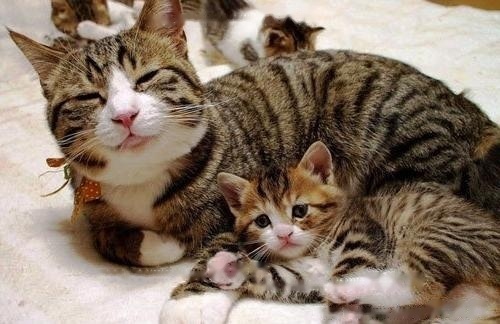Cats have only two kidneys, each with a ureter connected to the bladder organ. The combined function of both kidneys is usually higher than what they need in the body to function properly, so their kidneys function very well.

It is precisely because of this coddling that many cats do not like to drink water, which keeps their kidneys in the Law's condition. When the kidney function cannot meet the needs of the body, a phenomenon called kidney failure occurs in medicine. It is no wonder that kidney disease is the number one killer of cats.
Acute renal failure refers to the sudden loss of kidney filtration function, resulting in the accumulation of nitrogenous waste, and the imbalance of water, electrolyte and acid balance. Recovery is usually possible if diagnosed and treated quickly.
Chronic renal failure is the gradual deterioration of the function of the kidney itself, which usually takes a few months to a year. Phenomenon. The average age of onset is about seven years old, and the proportion increases with age.
1. Chronic renal failure
The first symptom is polyuria and thirst, as the disease progresses, other symptoms include weight loss, coat color change, anorexia , vomiting, bad breath, infected gums and mouth ulcers, eventually the cat cannot retain water and becomes dehydrated leading to weakness, collapse, shock and death, usually due to increased potassium flow in the blood leading to heart failure, chronic renal failure It is usually a disease of older cats, but not always.
[Causes include]
(a) Infection of the kidneys or other parts of the body
(b) Problems with the body's immune system
( c) Hereditary kidney defects
(d) Kidneys affected by toxins
(e) Kidney dysfunction due to normal aging
2. Acute renal failure
The onset process is rapid and often obvious symptoms such as anuria, vomiting, weakness, collapse and death.
[Causes include]
(a) Drug poisoning
(b) Any disease that causes dehydration or loss of body fluids
(c ) Sudden worsening of chronic renal failure
(d) Obstruction of urination, such as urethral obstruction
(e) Shock or heart failure
(a) General condition: Physical appearance, generally good hair, poor skin elasticity (dehydration), hypothermia, or fever, rapid breathing, slow heartbeat, sudden onset of loss of appetite, lethargy, ataxia, seizures.
(b) Gastrointestinal symptoms: bad breath, mouth ulcers, glossitis and even tongue ulcers, vomiting (sometimes bloody).
(c) Respiratory Symptoms: Strong Armonia odor on breath.
(d) Urinary tract symptoms: oliguria, anuria, or polyuria.
![[Dog Training 5] The training method of pet dog dining etiquette](/static/img/12192/12192_1.jpg)




